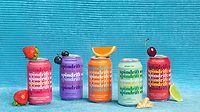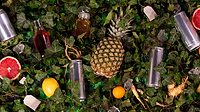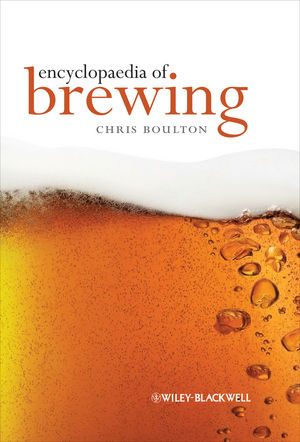Flavorman releases its 2025 Beverage Trends predictions
Experts predict increased interest in low- and no-alcohol, ingredient transparency

Image courtesy of Flavorman
Although there is no scientific consensus to prove or disprove psychic abilities in predicting what’s in store for the future, market researchers can get a pulse on future trends by utilizing a combination of scientific methods to identify emerging patterns and shifts in consumer behavior.
As such, the beverage experts at Flavorman, Louisville, Ky., have released their 2025 Beverage Trends predictions, continuing the company’s seven-year streak of foreshadowing industry trends for the upcoming year.
After countless hours of combing through flavor formulas, dissecting ingredient lists, and studying consumer cravings, Flavorman projects a notable rise in global-inspired flavors, particularly tropical fruits and international spices, it says. Predicted popular ingredients include coconut, papaya, dragon fruit, turmeric, star anise, coriander, and others, suggesting a consumer interest in beverages that bring a taste of the world to their cup, it notes.
Flavorman’s 2025 predictions also reveal a shift in consumer interest toward ingredient transparency. Flavorman’s Beverage Architects predict consumers will take a closer look at ingredients and any associated health claims. Rather than relying on bold, catch-all statements, brands should prepare for a shift in consumer behavior, as drinkers scrutinize what’s really in each beverage, the company says.
This trend toward wellness also aligns closely with the sober curious movement now sweeping the spirits industry, the company notes.
“The sober-curious lifestyle encourages consumers to re-evaluate their relationship with alcohol, often leading to reduced consumption,” said Kristen Wemer, chief technical officer at Flavorman, in a statement. “We’re seeing a significant rise in clients looking to develop ready-to-drink mocktails, non-alcoholic spirits, and NA beers and wines to meet this demand.”
These trends can be seen in new releases. For instance, Spiritless, a non-alcohol distilled spirits brand, recently announced the launch of its first pour-and-serve cocktail: Spiritless Espresso Martini.
Joining the brand’s list of non-alcohol spirits, Spiritless Espresso Martini is made with real-brewed coffee, giving it a bold flavor balanced with a touch of sweetness and hint of bitterness, the company says. The beverage contains less than 0.5% ABV and 38 mg of caffeine in each serving, it notes.
Luxury wine brand Oceano Wines also debuted its latest innovative offering with the roll-out of Syrah 2023 Reduced Alcohol Wine.
Created by gently removing the alcohol, Syrah 2023 is rich in flavor, with just 3.5% alcohol and 38 calories in each glass, the company says.
“As a trailblazer in high-quality nonalcoholic and reduced-alcohol wines, Oceano is defining luxury wines for mindful living,” said Rachel Martin, founder and CEO of Oceano Wines, in a statement. “This Syrah offers vibrant flavors, full body, and the signature depth and spice of Syrah with a lighter touch—perfect for those who want a little nip without being slowed down by alcohol.”
Meanwhile, in response to a growing preference for lower-ABV options, Flavorman forecasts that spirits like aperitifs, liqueurs and bitters will see increased interest in 2025, as drinkers seek flavorful, lighter options, it says.
On the branding front, Flavorman previously anticipated brand collaborations and product line extensions, citing examples like Coca-Cola’s co-branded launch with Oreo and SunnyD’s entry into the beverage alcohol market. For 2025, Flavorman anticipates an overarching trend of consumers wanting complete control and transparency of their drinks, noting that consumers are placing even greater value on variety and customization.
Beverages featuring customizable components, such as flavor cartridges, are expected to perform well, the company says. Moreover, marketing campaigns highlighting new flavors, variety packs, and “mystery flavors” will offer consumers a “pick and choose” experience they crave, creating a dynamic space for brand engagement, it notes.
Looking for a reprint of this article?
From high-res PDFs to custom plaques, order your copy today!







